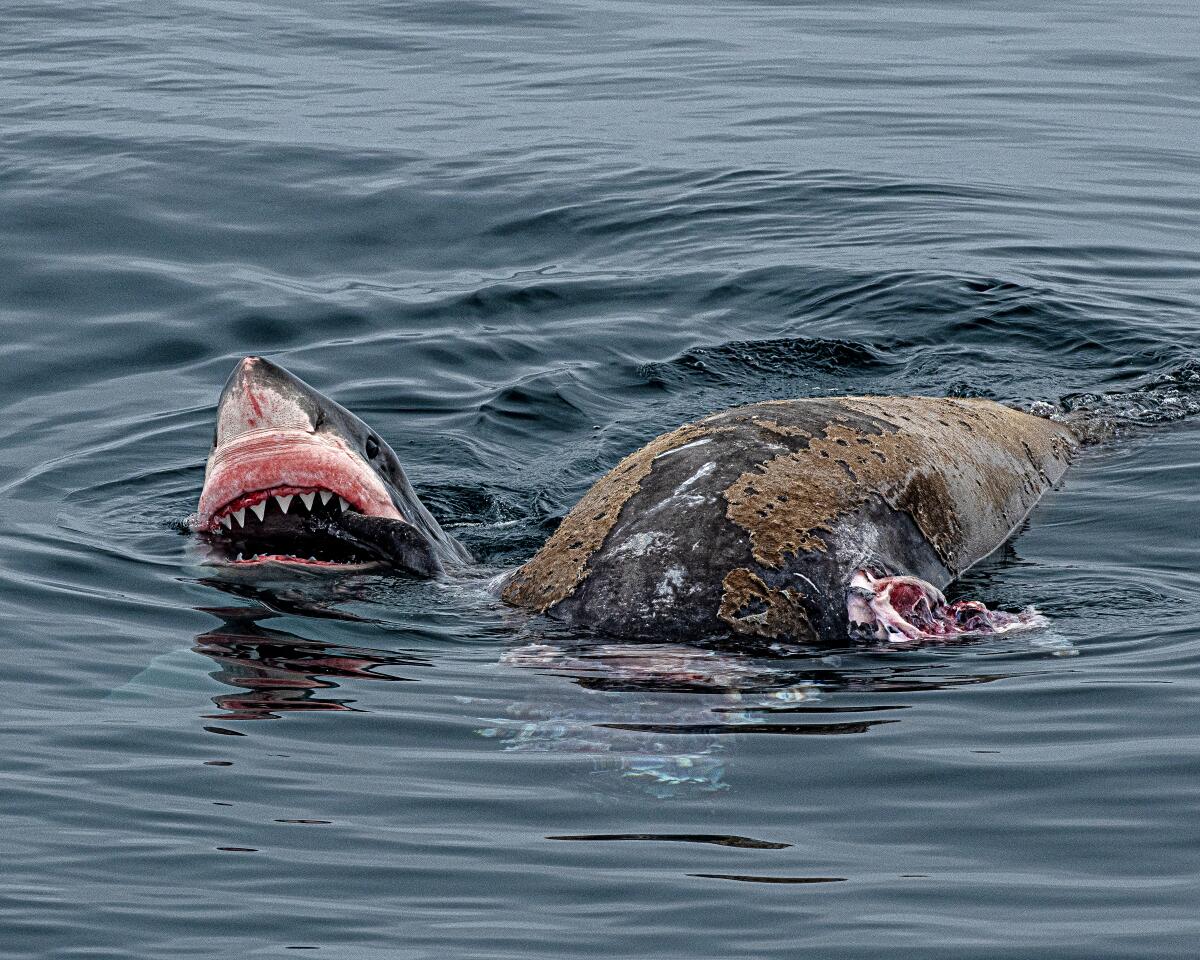-
Laguna fire: Evacuations, road closures, shelters - 42 mins ago
-
Donald Trump’s Second Cabinet Member Confirmed, John Ratcliffe to Lead CIA - 53 mins ago
-
Trump Is Leading a Global Surge to the Right - 2 hours ago
-
Equal Employment Opportunity Act Explained: What Donald Trump’s Move Means - 6 hours ago
-
Hundreds of endangered fish rescued from Palisades fire burn area - 7 hours ago
-
Donald Trump Said He’d End Ukraine War in First 24 Hours. He Hasn’t - 12 hours ago
-
Thailand Starts Recognizing Same-Sex Marriage - 12 hours ago
-
L.A. wildfires cause $350 million in damage to city facilities - 14 hours ago
-
Trump Suggests He Wants To Get Rid of FEMA on ‘Hannity’ - 17 hours ago
-
‘It’s hard to go to work when you’re worried your house could burn down.’ Fleeing flames in fire-weary SoCal - 20 hours ago
Whale-watching tour off Santa Barbara spots white shark feeding
A whale-watching tour got the photo opportunity of a lifetime when they spotted a rare white shark feeding from an elephant seal about 30 miles west of Santa Barbara.
The group of about 50 people were aboard the Condor Express, which conducts whale watching tours daily through the Santa Barbara Channel, according to Capt. Dave Beezer, who has been working for the company for nearly 20 years.
On Aug. 30, the group spotted the floating carcass of a dead elephant seal about 14 miles off the coast of Gaviota and Beezer knew to stick around in the area, he said. The seal’s head was missing so he thought a predator could be involved. Soon after, a 16-foot adult white shark emerged from the water and started feeding on the carcass.

The Condor Express whale-watching tour near Santa Barbara spotted a white shark feeding on an elephant seal on Aug. 30.
(Robert Perry / CondorExpressPhotos.com)
“It was digging its jaws into the side of the seal and taking out big chunks and then it would go out of sight,” he said.
White sharks, sometimes called great white sharks (Carcharodon carcharias), are the species featured in the 1975 classic film “Jaws.” The northeastern Pacific white shark population is on the rise and not at risk of becoming endangered in U.S. waters, according to the National Oceanic and Atmospheric Administration.
The shark circled the boat and surfaced about four or five times to take a bite out of the seal. Robert Perry, who has been photographing the ocean since the late 1960s, was also onboard, acting as the Condor Express’ staff photographer. The only time he’s ever taken photos of white sharks was when they were swimming around or under a dead whale so they weren’t fully visible.
Perry managed to capture several images of the white shark feeding.
“It was completely mind-blowing and a rare opportunity,” Perry added. “It was the shot of a lifetime.”
Beezer said he’s seen a white shark feed about four or five times in his lifetime. He emphasized the importance of the white shark to the region. Because San Miguel Island serves as a breeding ground for seals, the area has some of the largest seal populations in the world. White sharks keep some of those populations in check, he said.
“It’s not this mindless, killing machine that we should all be terrified of,” he added. “It’s a calculating predator that plays an important role in the ocean ecosystem.”
Source link













